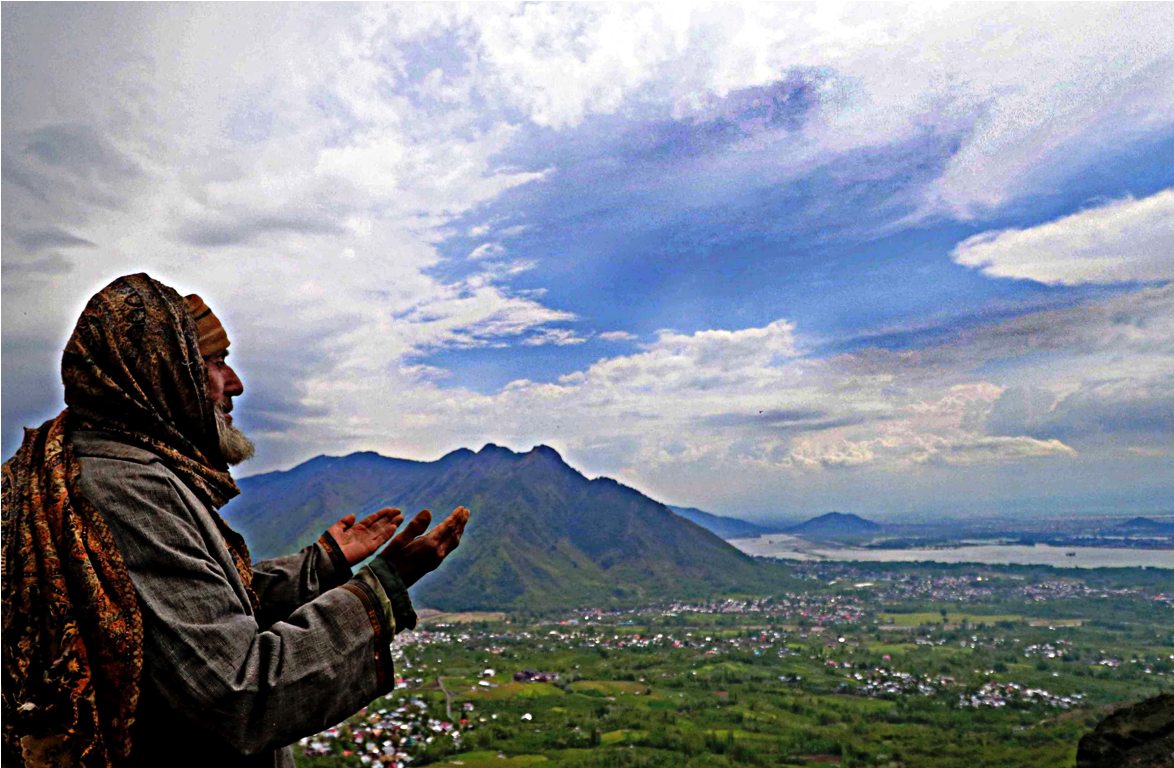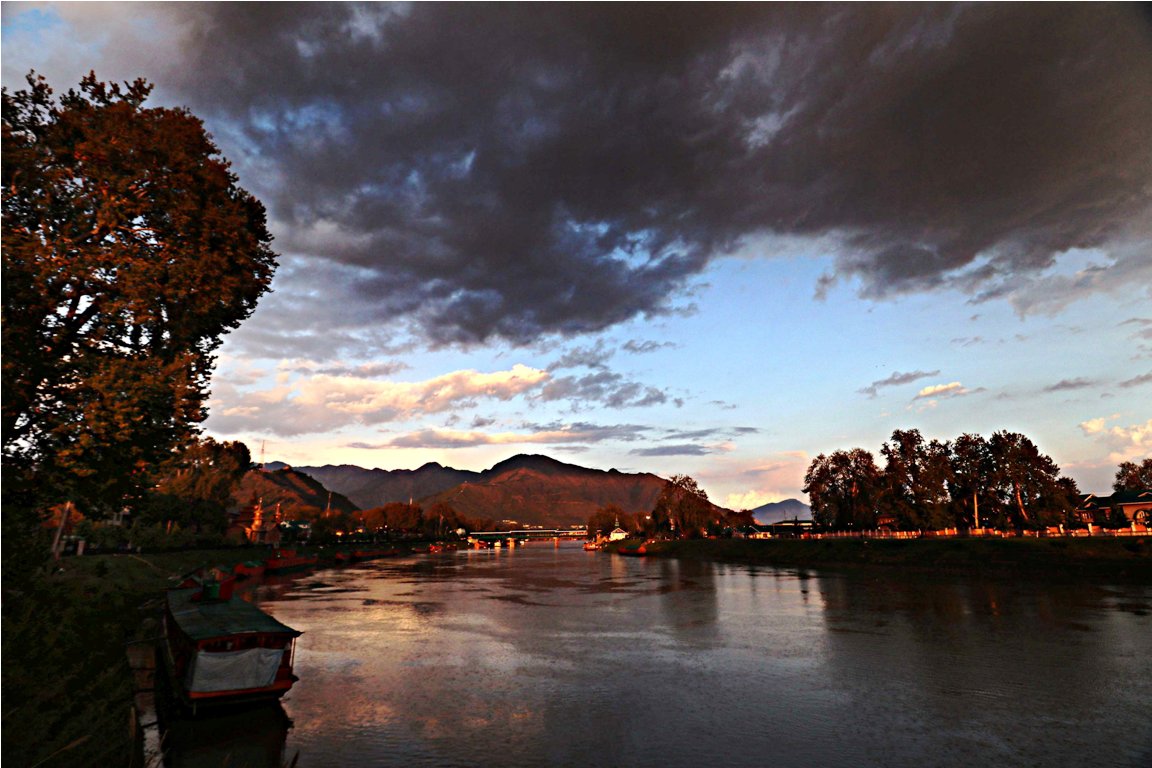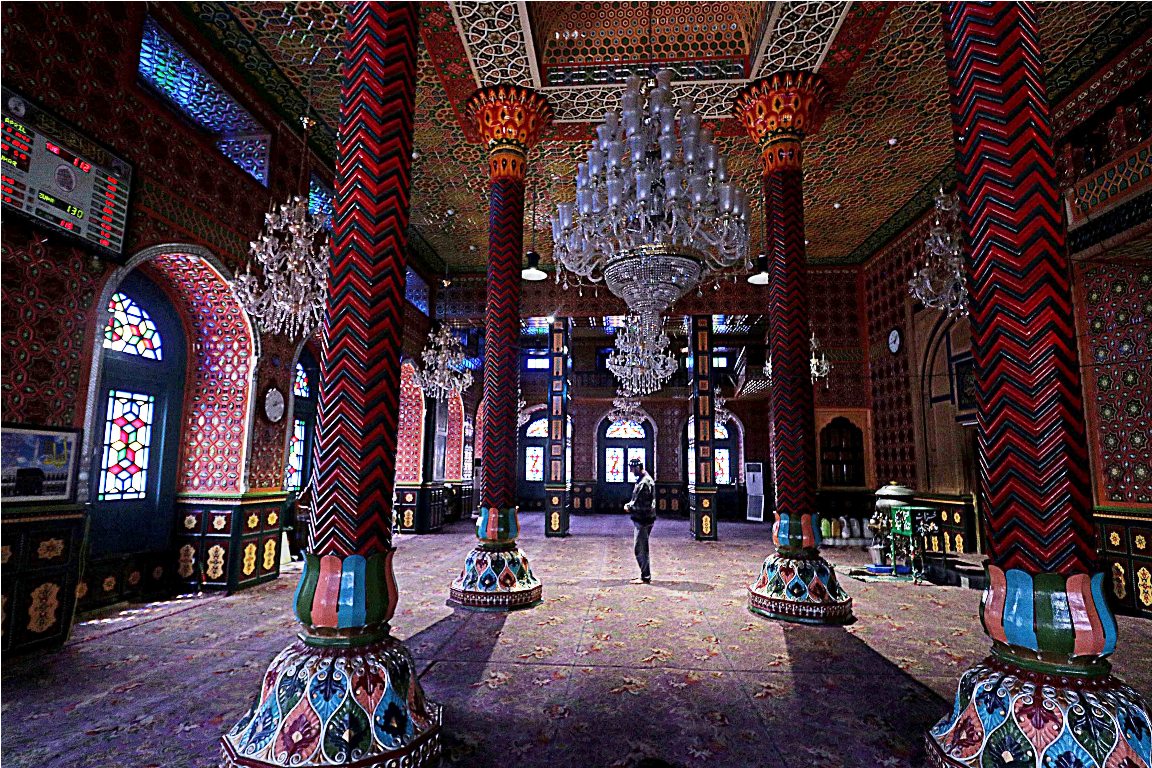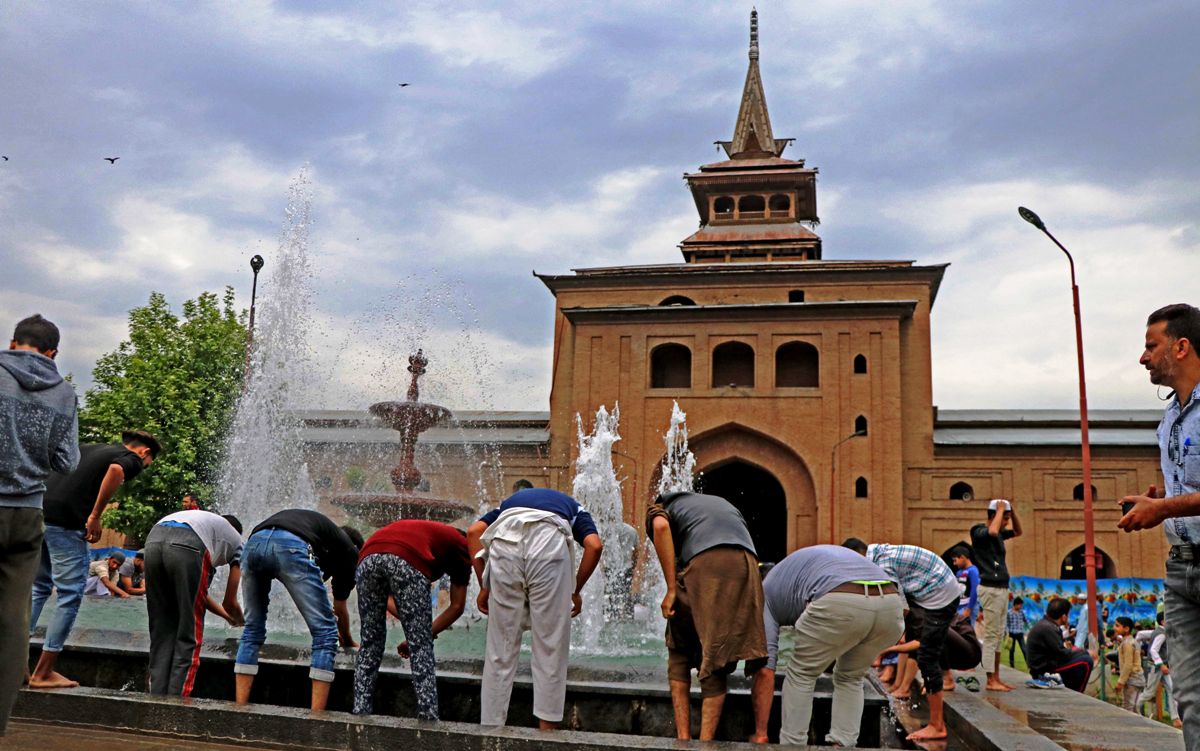As the Covid-19 pandemic has dictated its new rules, there would not be any congregational prayers, grand Iftaar’s and the lockdown will have an acute scarcity of items that usually would see a huge appetite during the Muslim month of fasting. The new order, perhaps first in Kashmir’s history, is expected to divest Ramzan from part of its festivity, if not the soul of it, reports Tasavur Mushtaq and Saif Ullah Bashir

Brisk business, bustling markets, shouting hawkers, and enthusiastic buyers, a host of activities mark the beginning of Ramzan – the month-long Muslim fasting. This year, however, Muslims across the globe may have to miss the festive cheer in the holy month, courtesy the Coronavirus. For the first time in living memory, almost everybody would stay restricted to the home. It is impossible for anybody to spend the month in Mecca. For Aatiqaf, spending the last 10 days in isolation in the mosque is also not possible in Ramzan 2020.
Controlled Congregation
Come Ramzan, everybody prefers to pray in the congregation. Devotees throng mosques for all the mandatory prayers, seemingly to rediscover themselves. The scene outside major mosques and shrines are scintillating. The vendors lay their stalls to sell dates, caps, attar (non-alcoholic perfume), miswaks, religious books, scarves, kurta pyjama and other items linked to festivals.

Srinagar’s Jamia Masjid presents a magnificent look. With a huge population around, locals come to the Masjid and pray. Later they sit in the lawns to spend intervening time between the prayers and on their way home take the essentials along. Inside, people spend time reciting the Quran and at times sleep on the mats.
However, this year the case is different. Caught in the pandemic, this Ramzan is expected to be a silent one across the globe. With a call to stay away from one another, the religious leaders and scholars have urged not to hold any congregational prayer as a precautionary measure.
Abdul Gaffar, a nonagenarian is a dejected man. A resident of Batamaloo and mason by profession, Gaffar is ailing. Working for most of his life, his ailments have forced him to stay home. His only activity had been to pray in congregation, always. A regular Masjid goer, Gaffar has been home since the spread of Coronavirus. Now with Ramzan around, the old man is yet to come to terms with the prospect of praying at home.
“This would be the first time in my life to pray at home during the Ramzan, particularly the Taraweeh,” he said. Witness to turbulence in Kashmir, Gaffar remembers the 1990s. “I have seen very hard times. The situation of the ’90s was too harsh that it was difficult to predict whether we will be able to see dawn or not. But it never stopped me from going to the Masjid”. Gaffar is not the only person to have such a feeling of loss. While fasting, nobody wants to miss his congregational prayers.
Shujat Ahmad, a banker by profession has his month-long plan for Asr, the third of daily prayers, fixed. A resident of Zaina Kadal, he visited different mosques, multiple shrines, since childhood. “We were enthusiastic about the holy month and used to plan our prayer destinations on the banks of Jhelum,” he said.
Suffering from a heart ailment, this time he said it is not possible to follow the past practices. “We are caught up in a difficult situation. This is something which we cannot deal with.”
Kashmir’s grand mufti, the man who announces the sighting of the new moon has asked people to offer obligatory five prayers and Taraweeh in their homes during the holy month. “Allah will listen to the prayers and respond too for the welfare of people of Kashmir and the rest of the world,” said Nasir-ul-Islam, adding the people of Kashmir should respect humanity and protect it in all forms.
While talking to Kashmir Life, Dr Abdul Lateef Alkindi, general secretary Jamiat-e-Ahle Hadith said that Ramzan is the month of mercy and forgiveness and there is a need to turn towards Allah. Regarding the current crisis, Dr Alkindi said the advice of health experts should be implemented strictly. “We welcome Ramzan and should seek forgiveness but we should listen to the experts on social distancing,” he said.
Dr Alkinidi said as per Islamic teachings it is important to save humanity. “We had in our earlier discussions advised avoiding congregational prayers, but certain ulemas did not agree. But now they too are advising the same.”

South Kashmir’s religious scholar Moulana Altaf Hussain Nadvi believes the current pandemic is a test from the Almighty and there is a need to go for self-introspection while maintaining the social-distancing. “This could be a golden opportunity to introspect and seek forgiveness from Allah,” he said.
Giving references, Maulana Nadvi said there is a clear direction of Salat-ul-Khoaf in Islam and the situation we are in is no different “This is not something Islam has not taught us. We have a defined path on how to behave under these circumstances.”
He further said he has not visited Masjid since lockdown was announced. “This has happened the first time in my life that I did not pray four Friday prayers at Masjid. I did not attend any congregational prayer at all.”
He emphasized that there is a need to save humanity and adhere to the guidelines. “See if the doctor said something would kill a person and if we still do that, this is simply a suicide, a prohibition in Islam,” he said. “It is not necessary to go Masjid and raise a voice; you can do it silently at home as well.” Coronavirus thus promises a silent Ramzan.
Even Masaharti (drumbeaters) are not sure to be present. A practice older than 400 years, people in Kashmir may miss them during ‘Waqt-e-Sehar’.
Restricted Commerce
Once bustling markets and crowded streets ahead of Ramzan, these are wearing a deserted look. With nation-wide lockdown and stay-at-home orders in place, the movement has been restricted to essential services and emergencies only.
After almost six months of closure post-August 5, the current crisis has dealt a major blow to businesses. “The pandemic has shattered our hopes of a revival. Covid19 is not less than a double tragedy for us”, said Farhan Kitab, spokesperson of Kashmir Economic Alliance.
Dates and Ramzan share an interesting story in Kashmir. Over the last few years, Kashmir markets sell different variety of dates and there is buyer appetite as well. Consumed in tons, it is estimated to be a business of around Rs 25 crore in 30 days.
With no movement around, the fresh dates are yet to reach the valley. “It takes around two weeks for transportation of dates for us. And in the first 2 weeks of the holy month, we used to sell all the dates and other items but due to lockdown, we are helpless. We are yet to receive passes, to run the vehicles.” said Farhan.
Regarding the varieties of dates, Hassan said Kashmir had a wide range available from Rs 100 per Kg to Rs 1200 Per Kg, but this time around the varieties have been curtailed. “You can have dates that were stored in the valley. The fresh supply from foreign countries is not there.” The supply of fruits has also been affected. Part of Iftaar, by and large, Kashmir market consumes 150 truck-loads of melons including watermelons daily. An average of 1.50 million kilograms, involves around Rs 3 crore daily.

This time traders fear that if the situation remains the same there may be huge losses. Currently, there is a huge dip in the inflow of fruit trucks to the valley. “Since lockdown, we receive 50-60 fruit-laden trucks of different varieties daily. Before lockdown around 90-100 trucks of only two fruits i.e Melon and watermelon used to enter the valley,” said Bashir Ahmad, president of Parimpora fruit mandi association. “By this figure, you can imagine the loss”.
Bashir has other concerns as well. He said there is a “sharp decline in the purchase of fruit in the valley.” His concern is shared by Wasim Hassan, a consignment agent in the Parimpora mandi. Hassan said there is a huge difference between the previous years of Ramzan and the current one. “We used to load fruit 15 days before the start of Ramzan but this year nothing of the sort has happened,” he said. There is panic as well, said Hassan. “People fear what to take home and whatnot. Local items get preference over things coming from outside.”
The only major fruit that will be available to the consumers is the local apple. This will be for the first time that Kashmir will consume the super-category apple that it produced for others.
The apple has an interesting story. The best apple was stored in November for delayed sale early April. Kashmir has the capacity to store almost 130 thousand tonnes of super apple. They had hardly started moving it out of the controlled atmosphere storage that the lockdown was implemented. Now we have almost 89000 tonnes of apple in Kashmir and the store owners with their grower partners have started marketing the same apple in the local market for the first time in history. How much of it will get consumed remains to be seen.
One of the major tensions that Kashmir kitchens are facing these days is the mutton. An undoubted Wazwaan country lacks access to the mutton these days. Restricted movements and closed outside mandis have also led to a scarcity of the mutton in the valley. Kashmir consumes around 100 tons of mutton every day, a market of Rs 2000 crore. In 2019, Kashmir is estimated to have consumed 200000 sheep in Ramzan, totalling around 3 million Kgs, said Mehrajuddin Ganaie, general secretary All Kashmir Wholesale Mutton Dealers Association (AKWMDA).
This Ramzan, Mehraj said, not even one per cent of the supply reaches Kashmir. Talking about the exorbitant prices at which mutton is being sold, he said: “We couldn’t regulate the rate as mandis were closed.” The supply, he said, is being made possible when a dealer in Kashmir gets a truckload of mutton from outside on personal rapport. This Ramzan he said would be different. “We usually get around 40 truckloads of mutton daily, but in this period we get only 1-4 every week.”
The pandemic has changed the way we were shopping. In Kashmir, as in the rest of the world, a group of departmental stores has started home delivery, particularly of Ramzan specific items including dates, dry fruits, Sooji, olive oil, basil seeds etc.

Apart from the government notified 25 stores, there are many others in the market doing the job. “People fear coming out of their houses, so we thought to provide them an alternative,” said a departmental store owner in Hazratbal.
According to Atif, 26, a young entrepreneur, member of Saga, a multi-branch departmental store, a customer who used to buy a box of 5kg of dates now prefer 1-2kg packets. Customers want to save their money as it is not clear where this pandemic will end”.
Traders fear heavy loss due to this crisis. “We have to pay employees, rent of shops, and serve bank loan,” said Farhan. However, the largest bank of Union Territory, the J&K Bank has come up with a package named ‘Covid-Package’ to help the businesses affected due to pandemic. “A proper package has been announced besides moratorium period of three months on all the existing loans,” said a senior bank functionary.
Muted Ramzan Celebration
Believed to be a month where families as per their affordability used to spend more, Ramzan has always seen the surge in demand for different items. Every home in Kashmir had a way to prepare for month-long fasting. Deep cleaning is known as Ramzan cleaning, detailed arrangements, and deciding the delicacies had been routine for almost every household.
Noora, a centenarian, remembers vividly the details of welcoming the Ramzan. Born in the old city and now residing at Batamaloo, she laments the crisis and sees it as God’s wrath. “Yi Chui Azaaab, (This is a curse), she said and added, “we have very good memories of this month.” Recalling the practice of her home, she said the family had cows, poultry, and sheep. The milk she got from cows was used for Iftaar at home and at times served to others as well. Ghulam Muhammad, 62, from Ahmad Nagar said he would get mutton, chicken, frozen food, dates, fruits different vegetables, and prepare himself the delicacies for Iftaar and Sehri. “Now everything has come to a halt,” he regretted.
No Place To Beg
As charity soars in Ramzan, the beggars have their pie. Their number surges and most of them are seen around the Masjids, shrines, and hospitals. Many knock the doors of houses, while others manage alms in public transport.
Reportedly as Ramzan nears, the non-local beggars come with their families to Kashmir. Later, they divide into groups and leave for different areas in the morning. In the evenings they count the cash. As per the official statistics of census 2011, the begging population of India stands at 4.13 lakh, of which J&K accounts for 0.5 per cent. A well-structured industry, begging this Ramzan would not be seen around.
The pandemic would prevent both local and non-local beggars to move from their homes. “When you don’t let your relatives enter the home, how come you will allow a beggar,” said Irfan Ahmad, a resident of Hawal.
No room for charity
The Ramzan has always been special to people in need, besides organizations involved in helping the downtrodden. Every household witnesses a huge rush of collectors. Mike-fitted vehicles keep roaming on roads seeking donations, while makeshift stalls erected in busy markets ask the faithful to donate generously.
This year, this is not going to happen, possibly. Zahoor Tak, who runs J&K Yateem Trust, said the situation is not conducive to go out and seek donations. “Online transaction is the only way to donate now. Our regular donors have the account number and they can transfer the amount,” he said. “We won’t go to anybody given the present situation.”
Speaking about the situation Tak said, “We used to have soul-stirring scenes during Ramzan, but this year being at home is the only solution.”
Urging people to donate within their reach to the person they trust, Dr Alkindi said: “people in their respective areas can donate to their committees or people they trust”. , “The charity is important. Wherever there is mention of Salat, there is mention of Zakat,” he further said, “Charity shields giver from any untoward incident.”
These charities and NGOs, most of them already busy in managing the lockdown triggered hunger, will be facing hardships in managing their routine activities. They have been responsible for managing part of the humanitarian crisis that the three-decades-old strife created. How they will manage their committed expenditures on orphanages, free schooling of the destitute and manage the kitchens of the listed beneficiaries remains to be seen.
Extraordinary evenings
Breaking fast together Iftaar is a special Ramzan practice. Not in vogue till the recent past, now Masjids in Kashmir have elaborate arrangements for Iftaar. Depending upon the locality and the resources, the delicacies may vary, but arrangements are in place. Outside big Masjids, the streets are lined up, particularly in the old city with vendors selling mouth-watering food items. As Magrib prayers are over, people enjoy the delicacies and chat. Desperate to wait for Iftaar announcements, children throng Masjids to taste the delicious items being served, particularly dates, gelatinous drink, locally called (Babribeoul triesh), and fruits.

Understanding its essence, many hotel owners started to have a Ramzan special menu to attract customers. In the last few years, it was seen to be emerging as a new trend-a family iftaar outside the home. In Srinagar’s press enclave, different organizations had their way to celebrate togetherness. Back home, there were also arrangements where friends, relatives were invited for breaking the fast. Even families were interested in taking food items to Masjids, orphanages, or other places. But the pandemic has brought everything to a halt. “How can we share the table in times of social distancing,” said Ishfaq Ahmad, an Imam of Masjid at Lal Bazar. Ishfaq said: “It is not advisable to go against the advice of health experts.”















